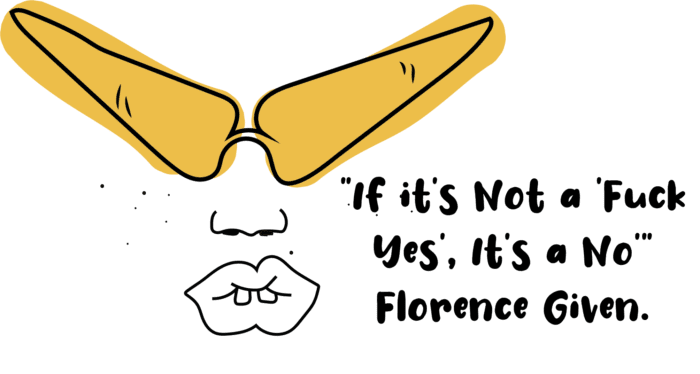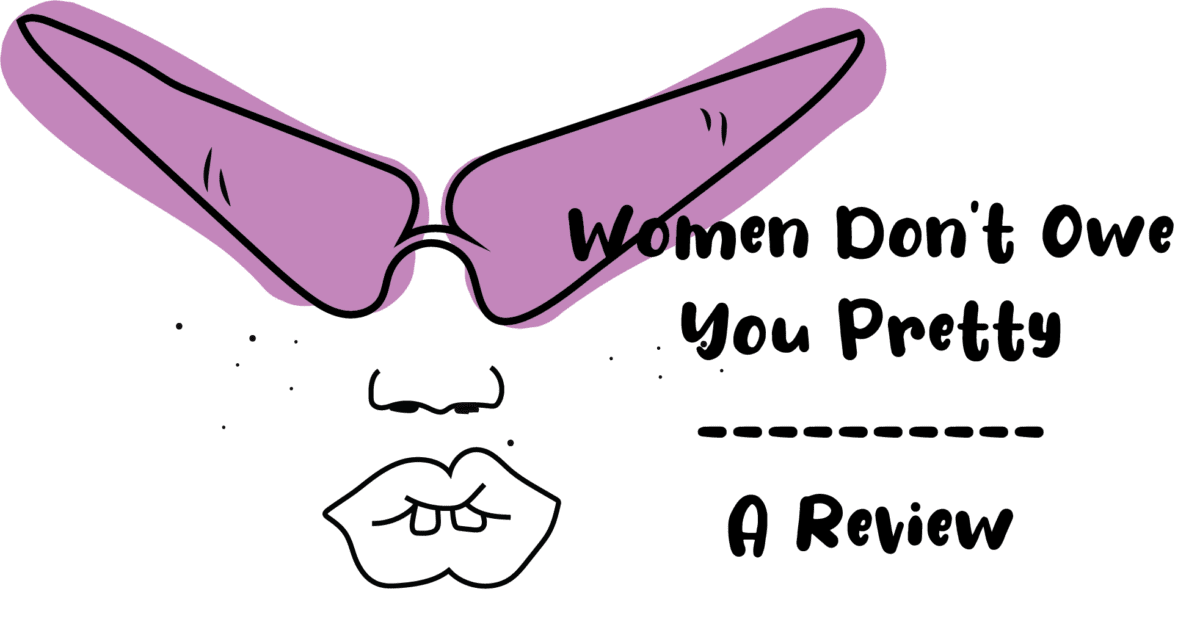Florence Given is a queer feminist writer and illustrator from Britain. She’s about to upend everything you thought you knew. In her new book, Women Don’t Owe You Pretty, Given tackles big topics from ‘prettiness’, male gaze, sexuality, consent, toxic relationships, and most importantly, checking your privilege.
I have wanted to read this book for a while now. And with an almost six-hour car journey from Coffs Harbour to Sydney, I decided to purchase the audio version. I did not, however, envision how scarily close to home a lot of what Given is saying would be for me. From my own struggles with ‘prettiness’, setting boundaries and privilege, this book resonated with me far more than I wish to admit.
The second chapter of the book hit me hard. Given challenges the everyday beauty rituals that women are expected to perform, from shaving, doing our makeup, doing our hair and dressing up. Nobody is forcing me to undertake these beauty rituals. No-one is holding a razor to my armpits. So why do I still feel this pressure? According to Given, this happens because we still live in a patriarchal society. This is a society which prioritises the desirability of women above everything else. Given asks us to question the ways we have internalised these standards of beauty. What parts of your beauty routine feel routinized and what parts make you feel electric? Hold on to these electric bits, she says, for this is your true self. And for the rest, get rid of it!
However, Given points out rebelling against these beauty standards is a privilege. For example, being able to grow out body hair without facing additional discrimination is a privilege rewarded only to thin, cisgender white women. A privilege that trans-women, fat-women and women of colour don’t always have.
In another chapter Given takes a deep dive into consent and boundaries in a way that is refreshing and enlightening. She offers some simple ways to ask for consent such as ‘Do you like that?’ ‘Can I take these off?’ ‘Is this ok?’ And if they don’t answer with explicit and enthusiastic consent, then it’s a no.
But most eye-opening, is her list of red flags indicating when sexual boundaries are being broken. Some examples include:
- Refusing to wear a condom.
- Removing a condom without consent
- Calling you demeaning names like ‘slut’, ‘whore’ or ‘bitch’ unless previously agreed upon
- Performing any sexual act on you without asking first.
Given also explores other areas of consent outside the bedroom. From men physically putting their hands on your waist to gesture you to move, or reading people’s phones without consent, all boundaries are important and should be upheld. This book made me realise how lacking sex education in schools is on consent and boundary setting.

Chapter twenty was probably one of the most important chapters of this book and is titled ‘Check your Privilege’. Given sets out a privilege checklist to see how you may be given a leg up in society without even knowing it. Some examples include:
White privilege/ethnicity:
- Do people know how to pronounce my name?
- Are people of my race widely represented in the media?
Cisgender privilege:
- Can I use public facilities, restrooms without fear of verbal abuse, assault or arrest?
- Do strangers ask me what my genitals look like or how I have sex?
Male or male passing privilege:
- Can I express myself and set boundaries without being called a bitch or someone attributing it to my time of the month?
- Can I walk the street and enter public spaces without the threat of sexual harassment?
Straight privilege:
- Do I feel comfortable displaying affection in public with my partner and do not expect hostile or violent actions from others?
- Have I ever had to come out of binary sexuality assumptions or publicly speak about sexuality with relative strangers?
Non-disabled privilege
- Can I go to new places knowing I can move through the area without pre-planning?
- Do people treat me in a childish fashion? Do they kneel when talking to me and using a patronising tone? Do I get offered unsolicited help for tasks?
This checklist helped drive home that nothing in our lives is untouched by privilege. But as Given herself points out as a white, cisgender, able-bodied woman, this book cannot be a one-stop shop for someone’s education on racism, homophobia and ableism. She encourages all of us to read books written by black folks and follow content created by disabled, fat and trans people on Instagram. ‘Reinvigorate your tired taste buds’ she shouts.
This book was uncomfortable and hard to listen to. It forced me to re-examine aspects of my life that I have either refused or not known needed to be examined. From my beauty rituals, internalised misogyny and privilege, Given encouraged me to question everything. Feminism, she states, is going to ruin your life (but in the best way possible). Please read this book if you want to be served some cold hard truths.
Think your name would look good in print? Woroni is always open for submissions. Email write@woroni.com.au with a pitch or draft. You can find more info on submitting here.
We acknowledge the Ngunnawal and Ngambri people, who are the Traditional Custodians of the land on which Woroni, Woroni Radio and Woroni TV are created, edited, published, printed and distributed. We pay our respects to Elders past and present. We acknowledge that the name Woroni was taken from the Wadi Wadi Nation without permission, and we are striving to do better for future reconciliation.
